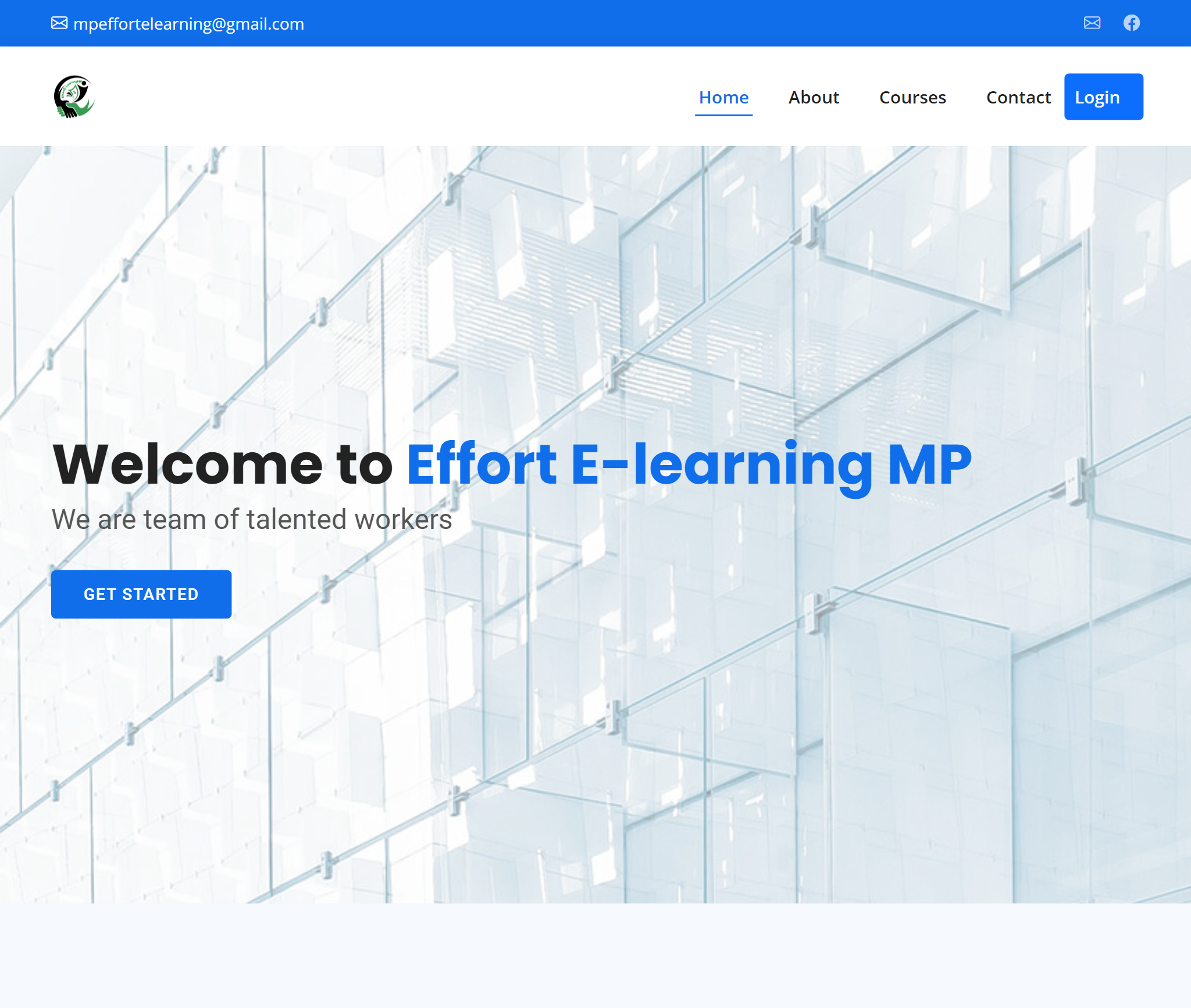Institution Management App.
Let's create something great for the future..








Build robust and dynamic websites with our web development solutions, Transform your ideas into fully functional websites with our expertise.

Transform raw footage into captivating stories through expert video editing and enhance your videos with precision editing, effects, and audio refinement.

Elevate your online presence with our premium SEO service. Drive traffic, rank higher, and dominate search results.

Transforming ideas into visually captivating designs and Captivate your audience with impactful graphic design solutions.

Collect best hosting service here.https://hostzone.techpartit.net/


Short From content
Short From content
Short From content


Short From content
Short From content
Short From content

In the digital age, having a website for your business isn’t just a nice-to-have; it’s a must. A website serves as your digital storefront, offering potential customers a first impression of your brand. Here’s why your business needs a website and how it can significantly impact your success. 1. Boosts Credibility and Trust In today’s competitive market, credibility is crucial. Consumers often research businesses online before making purchasing decisions. A professional website helps establish trust by showcasing your brand’s legitimacy. Without a website, your business may appear outdated or less trustworthy compared to competitors with an online presence. 2. Expands Your Reach A physical location limits your business to local foot traffic. A website, on the other hand, allows you to reach a global audience. With effective search engine optimization (SEO), your site can attract visitors from around the world who are searching for products or services you offer. This expanded reach can lead to increased traffic and, ultimately, more customers. 3. Showcases Your Products and Services Your website serves as a comprehensive platform to display what your business offers. You can provide detailed descriptions, high-quality images, and pricing information for your products or services. This allows potential customers to explore your offerings in-depth, understand their value, and make informed decisions. 4. Enhances Customer Engagement A website enables you to engage with your customers in various ways. Features like contact forms, live chat, and newsletters facilitate direct communication. You can also include customer reviews, FAQs, and blog posts to provide valuable information and build a connection with your audience. 5. Improves Marketing and Sales With a website, you have access to powerful marketing tools. You can implement strategies like content marketing, email campaigns, and social media integration to drive traffic and generate leads. Additionally, e-commerce functionalities allow you to sell products online, opening up new revenue streams and making it easier for customers to make purchases. 6. Provides Valuable Analytics A website offers insights into visitor behavior through analytics tools. You can track metrics such as page views, visitor demographics, and conversion rates. This data is invaluable for understanding what’s working, identifying areas for improvement, and making data-driven decisions to enhance your marketing strategies. 7. Offers 24/7 Availability Unlike physical stores with limited hours, a website is accessible around the clock. This means customers can browse your products, learn about your services, and make purchases at any time. Providing this convenience can increase customer satisfaction and lead to more sales. 8. Stays Competitive In a world where almost every business has an online presence, not having a website puts you at a disadvantage. A professional website sets you apart from competitors and shows that you are modern, reliable, and ready to serve your customers. It’s an essential component of staying relevant in a digital economy. 9. Facilitates Better Customer Service A website allows you to provide comprehensive information about your business, including customer support resources, troubleshooting guides, and contact details. This enhances your customer service by making it easier for customers to find answers to their questions and resolve issues independently. 10. Enables Scalability As your business grows, your website can grow with it. You can easily update content, add new features, and expand functionalities to meet evolving needs. This scalability ensures that your website continues to support your business objectives as you expand and adapt. Conclusion A website is a powerful asset for any business, offering numerous benefits from establishing credibility to expanding your reach and improving customer engagement. In today’s digital landscape, having a well-designed website is not just an option—it’s essential for success. By investing in a professional website, you set your business up for growth, increased visibility, and a competitive edge in the market.

In the digital age, video content has become a dominant force in communication, marketing, and storytelling. Whether you’re an entrepreneur, a content creator, or a marketer, mastering video editing can significantly enhance the quality and impact of your content. Here’s why video editing is essential and how it can transform your visuals into powerful messages. 1. Enhances Visual Appeal Raw footage often lacks the polish and professionalism needed to captivate viewers. Video editing allows you to refine your content by trimming unnecessary segments, adjusting colors, and adding effects. This not only makes your video more visually appealing but also ensures it aligns with your brand’s aesthetic and tone. 2. Conveys Your Message Clearly Effective communication is key to engaging your audience. Video editing helps structure your content logically, ensuring your message is conveyed clearly and effectively. By cutting out irrelevant parts and enhancing key moments, you can maintain viewer interest and ensure that your main points are communicated without distraction. 3. Increases Engagement Engaging videos are more likely to be shared and discussed. Video editing enables you to add elements like dynamic transitions, background music, and engaging graphics that capture attention and keep viewers hooked. By creating a more engaging viewing experience, you increase the likelihood that your content will resonate with your audience and encourage interaction. 4. Showcases Professionalism High-quality video content reflects positively on your brand or personal image. Professional video editing elevates the overall quality of your content, showcasing your commitment to excellence. This attention to detail can build trust with your audience and position you as an authority in your field. 5. Strengthens Brand Identity Consistency in branding is essential for building recognition and loyalty. Video editing allows you to incorporate brand elements such as logos, color schemes, and taglines. By maintaining a consistent style across your videos, you reinforce your brand identity and create a cohesive experience for your viewers. 6. Optimizes Content for Different Platforms Each social media platform and distribution channel has its own requirements and best practices for video content. Video editing enables you to tailor your content to meet these specifications, such as adjusting aspect ratios, adding subtitles, or creating platform-specific cuts. This optimization ensures that your videos look great and perform well across various platforms. 7. Adds Creative Flair Video editing provides a canvas for creativity. You can experiment with different effects, animations, and transitions to bring your vision to life. Whether you’re aiming for a polished, professional look or a more dynamic, playful style, editing allows you to infuse your unique creative touch into your videos. 8. Improves Storytelling A well-edited video tells a compelling story. Through techniques such as pacing, sequencing, and narration, video editing helps craft a narrative that resonates with your audience. By structuring your video to build suspense, highlight key moments, and create emotional impact, you enhance the storytelling experience. 9. Increases Accessibility Adding features like subtitles or closed captions through video editing makes your content accessible to a broader audience, including those who are deaf or hard of hearing. This inclusivity not only complies with accessibility standards but also broadens your reach and ensures your message is received by as many people as possible. 10. Boosts Return on Investment (ROI) Investing time and resources into video editing can lead to a higher return on investment. Well-edited videos are more likely to attract and retain viewers, generate leads, and drive conversions. By enhancing the quality and effectiveness of your video content, you maximize its impact and value. Conclusion Video editing is more than just a technical skill—it’s a crucial component of creating impactful, engaging, and professional content. By refining your footage, enhancing visual appeal, and crafting compelling narratives, video editing elevates your content and helps you connect with your audience on a deeper level. In a world where video is king, mastering the art of editing can set you apart and drive success in your digital endeavors.

Artificial Intelligence (AI) has become a buzzword that appears everywhere from tech headlines to science fiction. But what exactly is AI, and why is it so important in today’s world? In this blog post, we’ll demystify AI, explore its various forms, and discuss how it’s transforming our lives. Understanding Artificial Intelligence At its core, Artificial Intelligence refers to the simulation of human intelligence in machines that are programmed to think and learn like humans. This involves creating systems that can perform tasks requiring human-like cognitive functions, such as learning, problem-solving, and decision-making. AI systems can be designed to understand natural language, recognize patterns, and make predictions based on data. Types of AI AI can be broadly categorized into two types: Narrow AI (Weak AI): This type of AI is specialized for a specific task or set of tasks. Examples include voice assistants like Siri and Alexa, recommendation systems on streaming services, and chatbots used for customer service. Narrow AI is designed to perform a particular function and operates within a limited scope. General AI (Strong AI): General AI refers to a more advanced form of AI that possesses the ability to understand, learn, and apply knowledge across a wide range of tasks, much like a human. This type of AI is still largely theoretical and does not yet exist in practice. It represents a future goal of AI research. How AI Works AI systems operate using various techniques and technologies, including: Machine Learning (ML): A subset of AI where systems learn from data and improve their performance over time without being explicitly programmed. ML algorithms can identify patterns and make predictions based on past data. Examples include image recognition and spam email filtering. Deep Learning: A specialized form of machine learning that uses neural networks with many layers (hence "deep"). It excels in processing large amounts of data and is used in applications like speech recognition, image classification, and autonomous vehicles. Natural Language Processing (NLP): This field of AI focuses on the interaction between computers and human language. NLP enables machines to understand, interpret, and generate human language, which powers applications like language translation and sentiment analysis. Computer Vision: AI techniques that enable machines to interpret and understand visual information from the world, such as recognizing objects in images or video. This technology is used in facial recognition systems, medical imaging, and autonomous driving. Applications of AI AI is transforming various aspects of our lives, including: Healthcare: AI is used for diagnosing diseases, personalizing treatment plans, and analyzing medical images. It can help identify patterns in patient data that might be missed by human doctors, leading to earlier and more accurate diagnoses. Finance: In the financial sector, AI algorithms are used for fraud detection, algorithmic trading, and customer service automation. AI can analyze vast amounts of financial data to make informed decisions and manage risks. Transportation: Autonomous vehicles, powered by AI, are set to revolutionize transportation by reducing accidents, improving traffic management, and increasing efficiency. AI is also used for route optimization and predictive maintenance in logistics. Entertainment: Streaming platforms use AI to recommend movies and shows based on viewing history. AI is also used in video games to create more realistic and adaptive gameplay experiences. Retail: AI enhances customer experiences through personalized recommendations, chatbots, and inventory management. It helps businesses understand consumer behavior and optimize their supply chains. Ethical Considerations As AI continues to advance, it raises important ethical questions and challenges. Issues such as data privacy, algorithmic bias, and the impact on employment need to be addressed. Ensuring that AI systems are fair, transparent, and accountable is crucial for building trust and achieving positive outcomes. The Future of AI The future of AI holds immense potential. As technology evolves, AI is expected to become more integrated into our daily lives, driving innovation and creating new opportunities. However, it’s essential to approach AI development with careful consideration of its implications and strive for responsible and ethical use. Conclusion Artificial Intelligence is a powerful and transformative technology that is reshaping the way we live and work. From enhancing healthcare and finance to revolutionizing transportation and entertainment, AI’s impact is far-reaching. By understanding what AI is, how it works, and its applications, we can better appreciate its role in our world and navigate its future developments with awareness and responsibility.

We are available for freelance work. Connect with us via and call in to Our account.
Phone: +8801590007001 Email: [email protected]